IT’S 6AM on Sunday. In Brisbane, 27-year-old Bibi Amani wakes up underneath her pineapple-print bedspread. Her window is open, and as the cool morning air drifts in, she rolls over, picks up her phone and begins scrolling through Facebook news headlines. But instead of the typically entertaining mix of cat memes, baby photos and makeup tutorials, the retail worker’s social media feed is filled with one thing: the fall of Kabul.
When the Taliban captured Kabul on August 15, the news ricocheted around the world. Photos of desperate Afghans attempting to flee the country were met with horror and disbelief. Many observers wondered what would happen next – and what the news meant for women, who were systemically oppressed under Taliban rule in the ‘90s.
Bibi understands what may happen next better than many people. Having left Afghanistan at the age of eight, she knows firsthand what it’s like to live under Taliban rule – and what the consequences could be for family members who still live there.
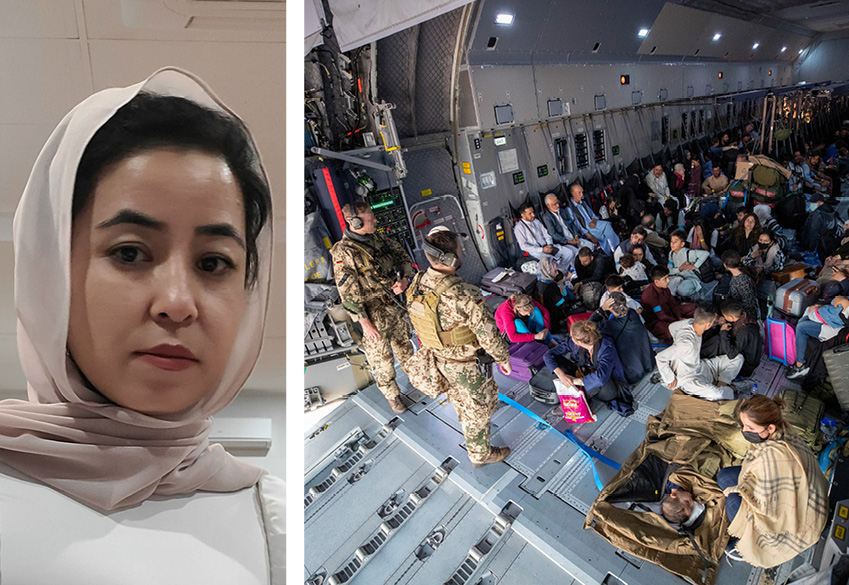

Under the militant group’s reign in the ‘90s, women weren’t allowed to leave the house without the company of a male chaperone or the covering of a burqa. They weren’t allowed to study, or work, or drive. They couldn’t wear high heel shoes or speak loudly in public.
“I can guarantee things are worse for women in Afghanistan today than they were yesterday,” says Bibi, with a sense of conviction. “And they’ll get worse tomorrow, and the day after.”
IT’S 7AM. Bibi is in constant contact with her family in Kabul. She messages them over Facebook, WhatsApp and they send voice messages to each other. She barely recognises her relatives’ voices. There is no warmth or hope; only short, sharp sentences laden with fear and desperation.
Her uncle, who worked for UNHCR, asks her for information on how to apply for a humanitarian visa to leave Afghanistan and find safety. “I’ve been sending them links to sites where they can apply for a visa and to organisations who might be able to help,” she says. “But I’m in Australia. What can I do from here? All I can do is cry, and pray, and ask for help.”
IT’S 8AM The Taliban are door-knocking houses. They are forcing soldiers and men to give up their weapons so no one can fight against them.
Bibi learns that her cousin, a soldier in his thirties, has been taken. She cries, and prays to Allah, and asks for help – posting on Facebook, contacting her local MP and reaching out to the media.
IT’S 9AM. In Sydney, Lala Pordelli wakes later than usual after a night spent glued to her phone, fearfully monitoring the news about Afghanistan and messaging her relatives in Kabul.
“I went to sleep reading articles that the Taliban were on the doorstep of Kabul, but I honestly didn’t think they would take over. I thought there would be resistance. When I woke up on Sunday, I was shocked,” says the solicitor, 31, who was born in Kabul and later fled to Pakistan with her family, who were active in a political group.
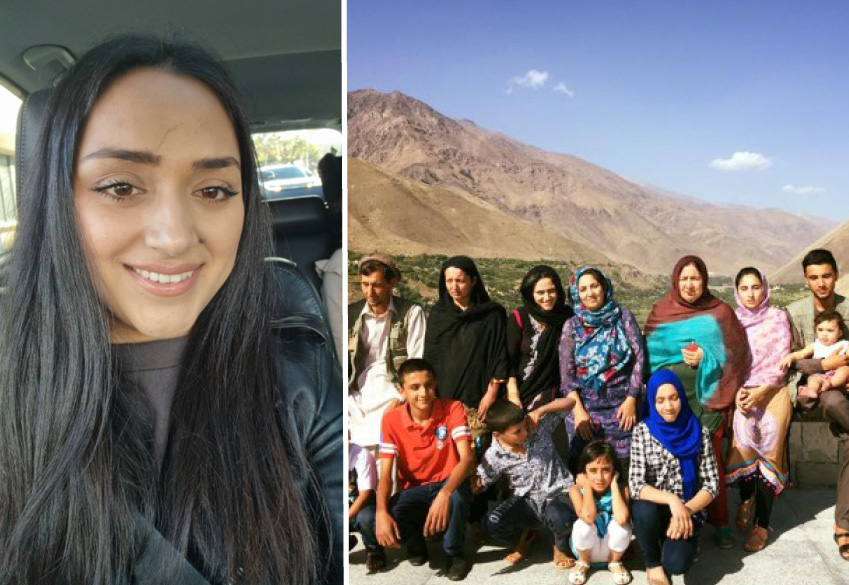

“It was the start of a very dark day. I felt like a part of me was lost that morning; my homeland was taken from me. My relatives are fleeing, and we can’t go back.”
“Seeing what’s happening in Afghanistan now is bringing back memories for my mum. We’re feeling overwhelming sorrow, grief, guilt and confusion. The Taliban is not reflective of our culture.”
IT’S 10AM. Lala receives a message from her Australian-based aunt in Sydney who has been in touch with friends and family still in Kabul. “At first, our relatives weren’t too scared. Then they heard news of lists with peoples’ names on them and saw footage of the Taliban digging ditches.
“There are lists with the names of women over the age of 15 and widows, who can be married off to soldiers into sex slavery. There are lists of people who’ve worked with the government or international forces, in the media or entertainment industry. The Taliban are door-knocking homes looking for the people on the lists.
“When they heard that, my relatives decided to pack a bag and go into hiding. A number of them have applied for humanitarian visas to Canada and have asked to leave the country with the Americans,” she says.
IT’S 5PM in Melbourne. Marwa Sadiqi and her mother Mariam, who left Afghanistan 26 years ago and moved to Australia, call their family in Kabul. Their Afghan relatives are huddled together in a living room as the city falls around them.
“Every night when we call my aunties and uncles, we can hear gunshots and screaming outside. Entire families are huddled together in a room the size of a small bathroom. They’re too afraid to leave their houses,” Marwa explains.


“Everyone is trying to get out of Afghanistan. They’re scared of the Taliban, and they’re lives have stopped: the banks are closed, the shops are shut, the work has stopped. Sitting in Melbourne, we feel helpless and devastated.”
IT’S 11PM. Mariam can’t sleep. Instead, she cries. She weeps for her homeland, for her family, her future. “I’ve lost my country, my peace and my hope. When I saw the Taliban burning the Afghanistan flag, it broke me,” she tells PRIMER later.
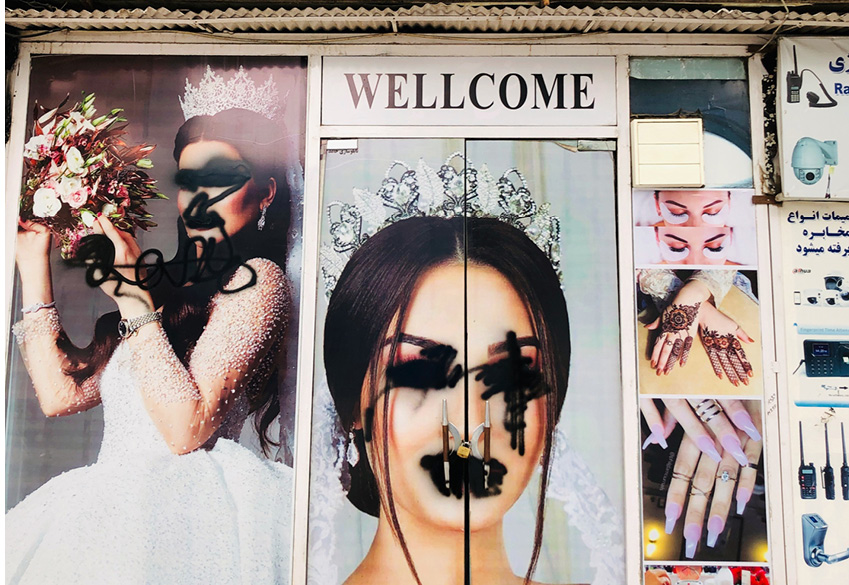

IT’S 12AM. Bibi receives a voice message from her cousin who was kidnapped earlier in the week. “I’m safe, for now,” he says. He doesn’t provide any details on how he escaped the Taliban captors or where he is hiding. All that matters is that he safe. For now.
Bibi is relieved, but like Mariam, she still can’t sleep. She cries, and prays, and asks for help: “We are safe and happy in Australia. I’m begging the Prime Minister to help the people of Afghanistan. I’m speaking publicly because I want people to listen to me: help us.”
Post-script
Speaking about this situation in Afghanistan isn’t just painful, it’s potentially dangerous. The consequences for people who criticise the Taliban are real – and brutal. But Bibi, Lala, Marwa and Mariam are all determined to speak up.
This week, Bibi has attended a local protest in Brisbane calling for more assistance from the Australian government, who withdrew ADF troops in June. Marwa and Mariam have sent money to their family, but with the banks closed, they’re afraid it won’t make much difference. Lala has raised closed to $50,000 alongside her Afghan-Australian community for desperately needed aid.
How you can help
Donate to non-government organisations
Australia for UNHCR has colleagues on the ground assessing the numbers and needs of the displaced. (The Governor of Kabul reports there are up to 120,000 internally displaced Afghans in Kabul province.) UNHCR is helping with shelter, food, sanitation and drinking water.
Too Young To Wed (TUTW) has established a rapid action fund to arrange the safe evacuation of 175 high-risk female Afghan journalists, activists and their families (including schoolgirls, an infant and toddler). TUTW was founded by Pulitzer-Prize-winning photographer Stephanie Sinclair
The Baba Mazaari Foundation is committed to raising $100,000 to assist displaced people within Afghanistan. The foundation is run from Adelaide.
Contact your local MP
Let your local MP know that you’re concerned about the situation in Afghanistan. It’s easy (and quick) to message your local representative via the Save Afghanistan Now page with offers an editable, templated letter. The website will even automatically find the contact details for your MP.




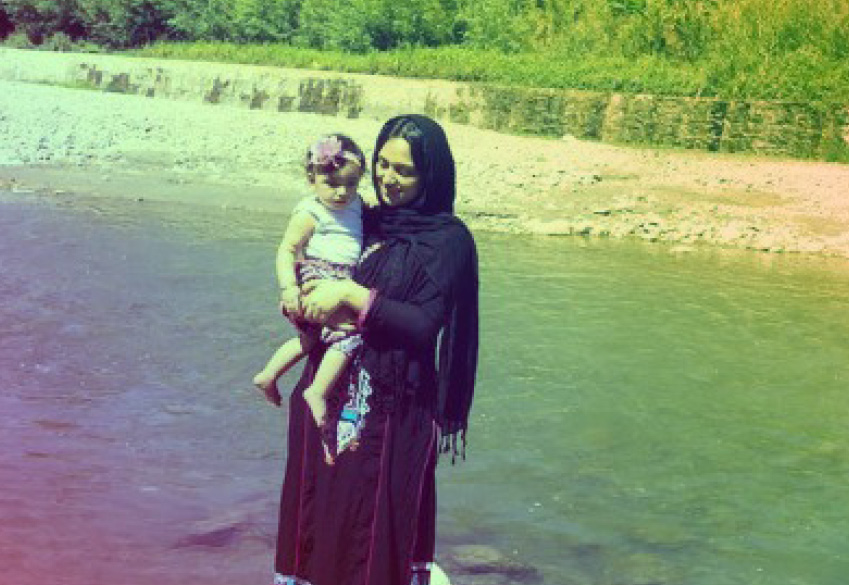

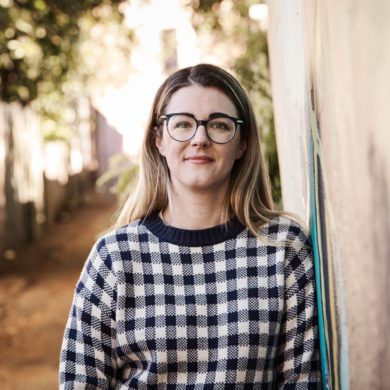
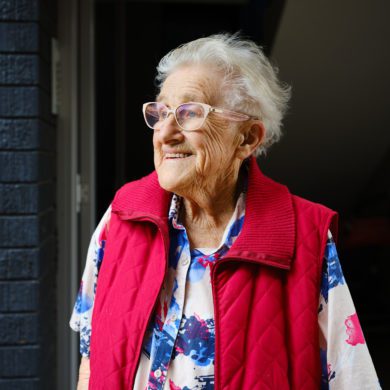

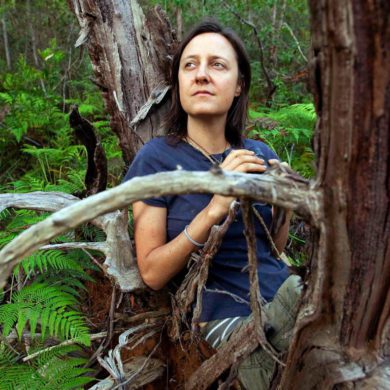


No Comments